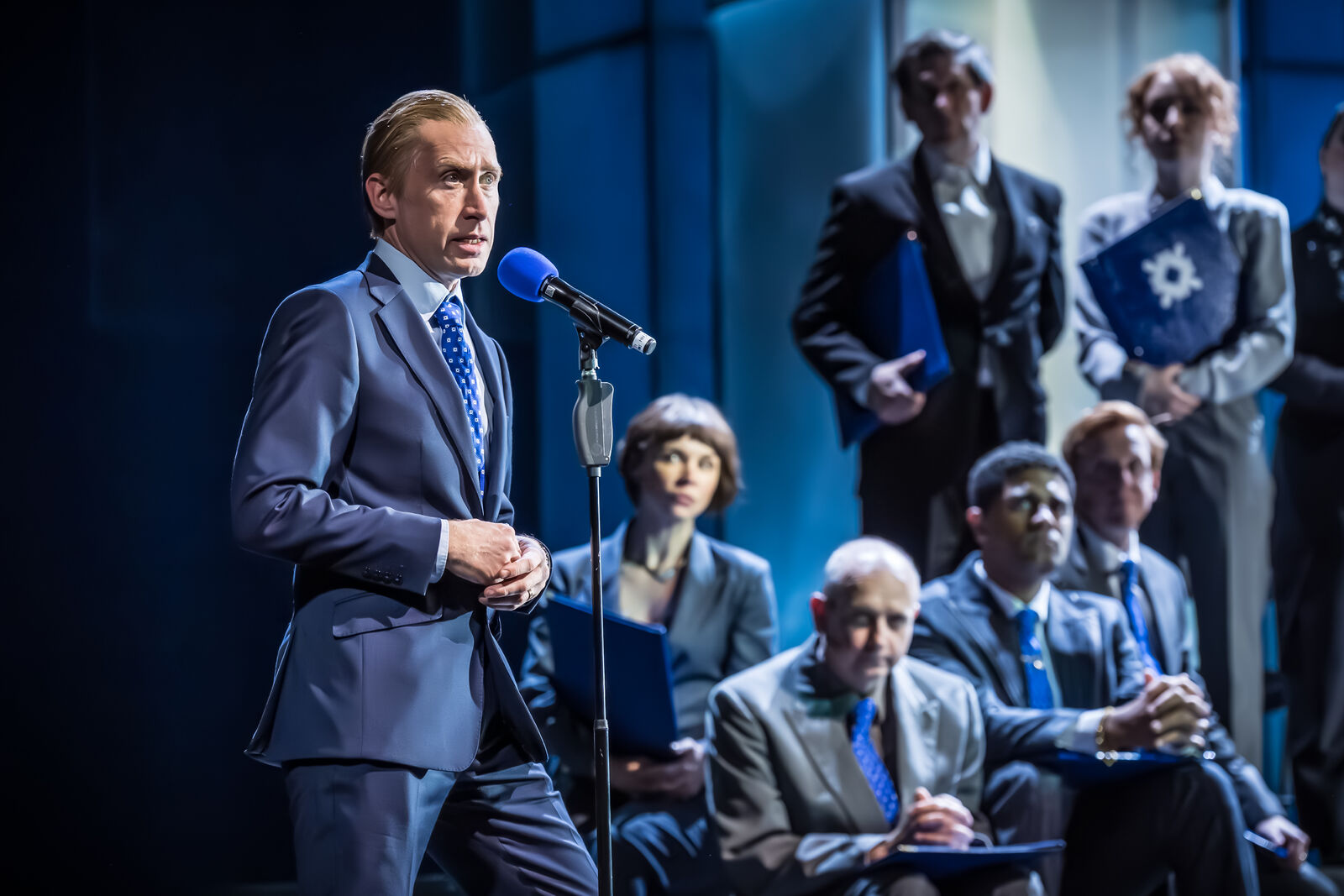The rise and fall of the Royal Bank of Scotland (RBS) is well known to anyone versed in business history. It’s a story that distils many of the corporate world’s failings. James Graham’s new jukebox musical Make It Happen, co-produced by Dundee Rep Theatre, focuses on RBS’s then-chief executive Fred Goodwin. Yet the scale of its ambition proves its own message, and the result feels overextended and unwieldy.
The narrative opens in 1999, the year Goodwin joined RBS and the Scottish Parliament was founded. An accountant by training, he is described as a ‘sleeping lion’ rather than a ‘cocky alpha.’ Passionate about Scottish independence and driven by grand ambitions, he idolises Adam Smith, the Scottish economist he regarded as the father of capitalism.
As Goodwin’s appetite for risk grows, so does everyone’s at RBS. Graham presents the idea that a twenty pound note is nothing but paper until value is projected onto it, a concept underpinning the shadow banking system the bank pursues. Alongside this expansion comes Goodwin’s swelling ego and increasingly ruthless approach. Around this time, the ghost of Adam Smith begins to appear to him, played by Brian Cox. In one scene, they walk and talk with snowfall on stage, which inevitably evokes A Christmas Carol.
Graham, fresh from his 2024 Olivier win for Dear England, has clearly researched the financial crisis and the part British banks played in it. Yet the production never settles on whether its main concern is the economic collapse or Goodwin’s personal journey. Early characters such as Rita (Hannah Donaldson) are introduced with promise only to vanish into the ensemble as focus shifts to Goodwin’s ambitions, his dealings with Downing Street, and his philosophical duels with Smith’s ghost.
Like its subject, Make It Happen aims to be many things at once: a corporate cautionary tale, a political drama about the 2008 crash, a character study of Goodwin, a Dickensian moral fable, and a jukebox musical. The latter features songs including Guillemots’ “Take Me Home,” Adele’s “Chasing Pavements,” and The Killers’ “Read My Mind,” performed by the ensemble, The Furies. In the end, however, the production doesn’t fully deliver on its promise. It skirts between critiquing capitalism’s endless appetite for growth, probing the personalities behind RBS, and exposing how weak governance and unprofessional regulation paved the way for collapse, without exploring any strand in full.
As revealed in the final exchanges between Goodwin and Smith, the banker has read only one of Smith’s works, The Wealth of Nations, and not the volume Cox’s Smith holds most dearly, The Theory of Moral Sentiments. It’s a telling omission, and the moral core of Graham’s tale: the danger of embracing capitalism’s engine without sympathy, equality and regard for the happiness of others. For all the show’s surplus of messages, audiences may still leave the theatre with at least one worthwhile takeaway: a new addition to their reading list, if they have yet to explore Smith’s wisdom outside the invisible hand.


Comments